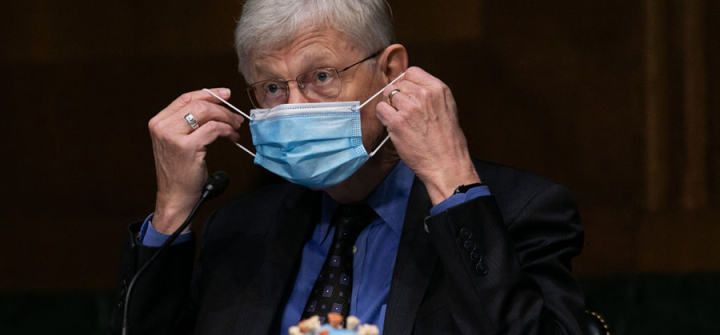Francis Collins' Take
In an era rife with challenges, there’s still “an abundance of good things” happening—with some caveats, NIH chief Francis Collins said yesterday in a virtual conversation with Bloomberg Philanthropies’ Kelly Henning about the key issues facing the US in this next phase of the pandemic.
Takeaways:
1. Reminder: The 3 COVID-19 vaccines available in the US are effective “beyond what almost any of us dared to hope for.” Despite concerns about the deteriorating effectiveness over time, “they're still pretty darn good and even good against Delta.”
BUT: There was a roadblock: 70 million Americans opting out of getting vaccinated. What’s more, the FDA approval of Pfizer’s jab didn’t quell that hesitation as hoped.
As it turns out: “Most people had other concerns that kept them from rolling up their sleeves,” Collins said. “This is a serious and, I must say, somewhat of an unanticipated obstacle to getting this pandemic over with.”
2. Boosters seem to work: “The data looks really impressive,” said Collins, referring to numbers from Israel showing that a third dose of the Pfizer shot provided a 10-fold reduction in infections 12 days after the additional shot.
BUT: Booster shots may one day need to be adjusted to cope with a future variant, but “so far we haven't had to do that. It's really quite reassuring.”
Also: So far, Pfizer is the only booster game in town—Moderna and Johnson & Johnson are both further behind in the approval process by several weeks.
Wait for it: The NIH is running a “mix and match” trial to see how people fare when boosted with the same vaccine versus a different one. More will be known within a month or so.
3. Mu may be a moot point: “There was a buzz a bit about that variant,” which emerged in South America, Collins said, but “it has not taken hold in the US and there’s less of it now than there was a month ago—so it doesn't seem to compete that well with Delta.”
BUT: Global surveillance of variants is patchy, especially in low- and middle-income countries. “Some have estimated that we’re only maybe 4 or 5 mutations away from a virus that would evade our current vaccines and that's not a happy thought, so we do need that surveillance and we need to be ready.”
4. We’re heading into flu season with better tests, which will be key for making the all-important distinction between the 2 viruses. “I'm happy to say, a lot of those rapid response tests are now rolling out to be able to make an answer available in the matter of 30 minutes or so. We're going to need a lot of those tests.”
BUT: Flu season may be worse this year than last because more people are out and about and unmasked— “the flu is going to take advantage of that.”
NIH director Francis Collins at a Senate Appropriations Subcommittee hearing, Washington, DC, July 2, 2020. Image: Graeme Jennings/Washington Examiner/Bloomberg/Getty




